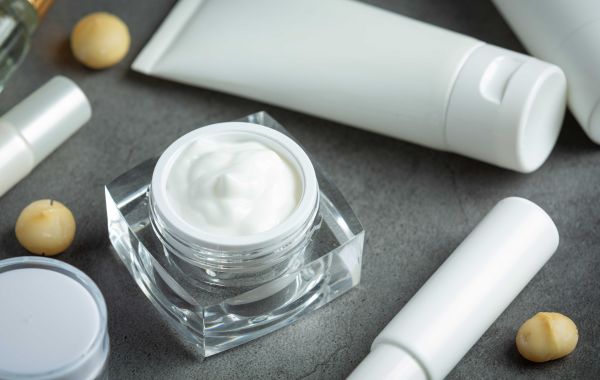As I approach my 30s, I can’t help but notice the fine lines creeping in around my eyes and mouth. While I’ve always prided myself on having a youthful complexion, the reality is that skin changes with age. It’s natural, of course, but that doesn’t mean I don’t want to do everything I can to slow the process down. That’s when I started wondering: do wrinkle creams really work?
If you’ve ever found yourself standing in front of the skincare aisle, wondering whether a wrinkle cream will make a noticeable difference, you’re not alone. With countless options available and an overwhelming amount of marketing claiming dramatic results, it can be hard to determine if these products live up to their promises. In this article, I’ll explore the truth behind wrinkle creams in the UK, shedding light on whether they really reduce fine lines or if they’re just another beauty trend.
What Are Wrinkle Creams?
Before we dive into their effectiveness, it’s essential to understand what wrinkle creams are and how they claim to work. Wrinkle creams are generally moisturisers formulated with ingredients aimed at reducing the appearance of wrinkles and fine lines. These creams often contain a mix of active ingredients such as retinol, peptides, hyaluronic acid, and antioxidants. While the specific formulations can vary between brands, the goal is the same: to smooth out the skin and make it appear firmer and more youthful.
The concept behind wrinkle creams is relatively simple. The ingredients in these products are designed to hydrate the skin, stimulate collagen production, and protect against environmental factors that cause premature ageing. But the question remains: do these ingredients actually have the power to reverse or significantly reduce fine lines over time?
The Role of Hydration
One of the key factors in wrinkle creams is hydration. Skin that’s well-hydrated tends to look plumper and smoother, which can temporarily reduce the appearance of fine lines. Ingredients like hyaluronic acid and glycerin are often included because they draw moisture into the skin and help it retain that moisture. By keeping the skin well-hydrated, wrinkle creams can provide a temporary smoothing effect that might make fine lines less noticeable.
However, this doesn’t mean that hydration alone can completely eliminate wrinkles. The effect is often short-term, and once the product is washed off, the skin will return to its usual appearance. So, while hydration is important and helps to improve the skin’s overall appearance, it’s just one part of the equation.
Key Ingredients to Look For in Wrinkle Creams
Now, let’s take a closer look at some of the active ingredients commonly found in wrinkle creams and whether they can genuinely make a difference in reducing fine lines.
Retinol
Retinol, a form of Vitamin A, is one of the most well-known ingredients in anti-ageing skincare. It works by promoting cell turnover, which means it encourages the skin to shed old, dead cells and produce fresh new ones. This can help to smooth out fine lines and improve the texture of the skin. Retinol also stimulates collagen production, which is key in maintaining skin elasticity and firmness as we age.
That said, retinol can be irritating to some skin types, especially when first introduced. It’s important to start slowly and use it at night, as it can increase sensitivity to the sun.
Peptides
Peptides are chains of amino acids that help to build proteins in the skin. These proteins, such as collagen and elastin, are crucial for maintaining skin’s structure and elasticity. As we age, the production of these proteins decreases, leading to sagging skin and wrinkles. Peptides in wrinkle creams can help to stimulate the skin’s natural production of these proteins, potentially improving the appearance of fine lines over time.
Antioxidants
Antioxidants, such as Vitamin C, Vitamin E, and green tea extract, are frequently found in wrinkle creams because they help combat free radicals. Free radicals are unstable molecules that can damage skin cells and accelerate the ageing process. By neutralising free radicals, antioxidants can help to protect the skin from environmental damage, which in turn may slow down the formation of new wrinkles.
While antioxidants are undoubtedly beneficial for skin health, their impact on existing fine lines is less direct. Instead, they work more as preventative measures, helping to protect against further ageing.
Hyaluronic Acid
Hyaluronic acid is a powerful hydrating ingredient that has the ability to hold up to 1000 times its weight in water. It helps the skin retain moisture, giving it a plumper and more youthful appearance. While it can’t erase wrinkles, hyaluronic acid can temporarily fill out the skin, making fine lines and wrinkles appear less prominent. The effects are often immediate but only last as long as the product is applied.
The Effectiveness of Wrinkle Creams
So, do wrinkle creams really reduce fine lines in the long term? The answer is yes—and no. Wrinkle creams can certainly help improve the overall appearance of your skin, but their ability to completely erase fine lines is limited.
The effectiveness of a wrinkle cream largely depends on the ingredients used and how consistent you are with your skincare routine. Ingredients like retinol, peptides, and hyaluronic acid can help to reduce the appearance of fine lines, but they won’t deliver overnight results. With consistent use over weeks or months, these products can smooth out your skin and make wrinkles less noticeable, but they won’t turn back the clock entirely.
It’s also important to remember that skincare is only part of the equation. A healthy lifestyle—such as staying hydrated, eating a balanced diet, getting enough sleep, and protecting your skin from the sun—can all contribute to keeping your skin in top condition and reducing the visible effects of ageing.
Can Wrinkle Creams Prevent Future Wrinkles?
While wrinkle creams may not erase existing wrinkles, they can help prevent new ones from forming. By using products with ingredients that support skin health, like antioxidants and SPF, you can protect your skin from environmental damage that accelerates the ageing process. Sun exposure, in particular, is a leading cause of premature wrinkles, so incorporating SPF into your routine is crucial for long-term skin health.
Additionally, a good wrinkle cream that promotes collagen production or boosts hydration can help maintain your skin’s elasticity and firmness, reducing the risk of deep wrinkles developing in the future.
Wrapping Up: Are Wrinkle Creams Worth It?
In conclusion, wrinkle creams in the UK can certainly provide benefits, particularly when it comes to smoothing the skin and reducing the appearance of fine lines. However, they are not magic solutions that will completely eliminate wrinkles. The most effective approach to skincare combines a consistent routine, a healthy lifestyle, and sun protection.
While a wrinkle cream might not give you the dramatic, instantaneous results you’re hoping for, it can be an essential part of a broader skincare strategy that keeps your skin healthy and youthful for years to come. And remember, the key to success with any skincare product is consistency—give it time, and you might just see a difference!








